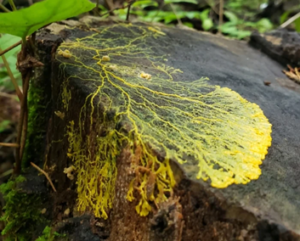
Slime Molds
Have you seen anything like this in your mulch beds this summer? Collectively, these are called slime molds. Even …



El inglés es el idioma de control de esta página. En la medida en que haya algún conflicto entre la traducción al inglés y la traducción, el inglés prevalece.
Al hacer clic en el enlace de traducción se activa un servicio de traducción gratuito para convertir la página al español. Al igual que con cualquier traducción por Internet, la conversión no es sensible al contexto y puede que no traduzca el texto en su significado original. NC State Extension no garantiza la exactitud del texto traducido. Por favor, tenga en cuenta que algunas aplicaciones y/o servicios pueden no funcionar como se espera cuando se traducen.
Inglês é o idioma de controle desta página. Na medida que haja algum conflito entre o texto original em Inglês e a tradução, o Inglês prevalece.
Ao clicar no link de tradução, um serviço gratuito de tradução será ativado para converter a página para o Português. Como em qualquer tradução pela internet, a conversão não é sensivel ao contexto e pode não ocorrer a tradução para o significado orginal. O serviço de Extensão da Carolina do Norte (NC State Extension) não garante a exatidão do texto traduzido. Por favor, observe que algumas funções ou serviços podem não funcionar como esperado após a tradução.
English is the controlling language of this page. To the extent there is any conflict between the English text and the translation, English controls.
Clicking on the translation link activates a free translation service to convert the page to Spanish. As with any Internet translation, the conversion is not context-sensitive and may not translate the text to its original meaning. NC State Extension does not guarantee the accuracy of the translated text. Please note that some applications and/or services may not function as expected when translated.
Collapse ▲
Have you seen anything like this in your mulch beds this summer? Collectively, these are called slime molds. Even …
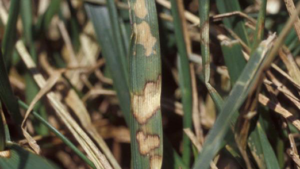
If you are irrigating your lawn too much during all this hot weather, you may start to see brown …

In partnership with Top Hat Monocle, we have just released an online interactive version of the NC Extension Gardener …

Aaron Moore serves as the Union County Agriculture and Small Farms Agent where he works with people who grow …

In this video, Luke Gatiboni, the extension soil fertility specialist at the Department of Crop and Soil Sciences, gives …
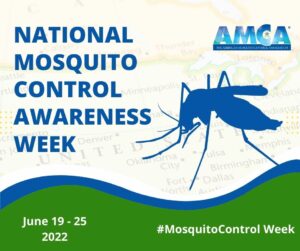
From June 19th through June 25th, the American Mosquito Control Association (AMCA) promoted “Mosquito Awareness Week”. The annual event …

Over the past few years, we have been saying it’s a matter of “when”– not “if”– the spotted lanternfly …

Alexander County Farmers are finishing up the Wheat Harvest for 2022. Wheat has long been a staple in the …

6/23/2022 – The NC Alternative Crops and Organics Program staff produced a colorful and informative update on everything going …
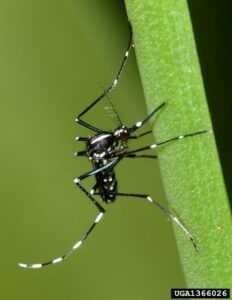
Pesticide license categories often have overlapping areas of applicability, resulting in confusion over exactly which license category is required …
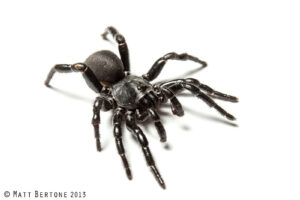
I’ve been getting a few emails and calls about large, menacing-looking black spiders that are often confused for exotic, …

Please join us for the 2022 Apple Field Day on Thursday, July 28th beginning at 4 p.m. here at the …
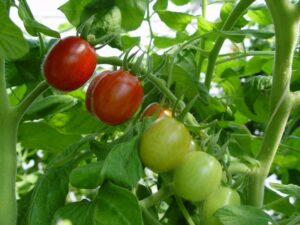
Please join us for the 2022 Tomato Field Day on Thursday, August 11th here at the Mountain Horticultural Crops Research and …

“Collectively, costs were $374 lower per person per year for those living near the greenest space compared to those …

6/14/2022 – Everything you need to grow commercial vegetables, herbs, and hops in the Southeast can be found in …
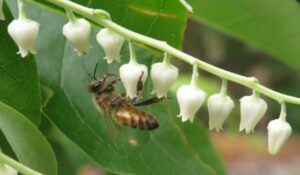
Next week is National Pollinators Week, June 20th – 26th. In honor of all our wonderful and hardworking pollinators, …

Water management is important. To help farmers in North Carolina, Chad Poole, Assistant Professor and Extension Specialist is looking …
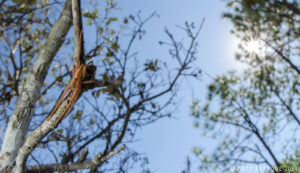
We’ve been getting a lot of inquiries about spiders hanging around and coming inside homes lately. Some have …